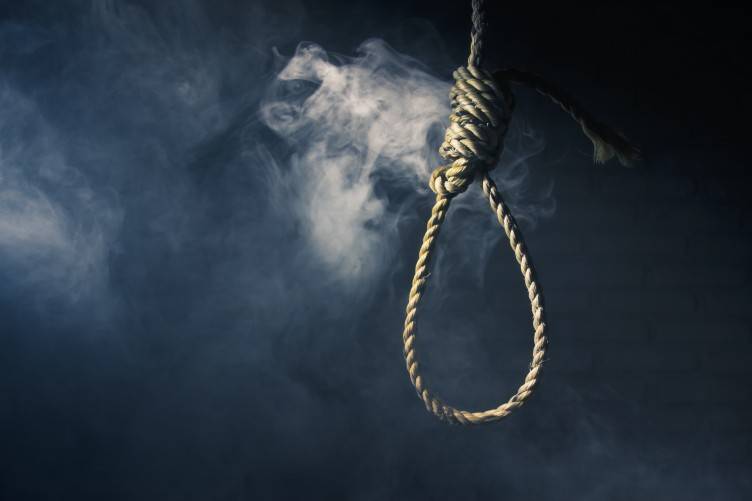
A trial court in Lahore has sentenced a 37-year-old Christian man to death for sending blasphemous text messages in 2013.
"Asif Pervaiz, 37, a Christian man accused of sending blasphemous text messages in 2013, has been sentenced to death for "blasphemy" by a court in the eastern Pakistani city of Lahore, his lawyer says," tweeted journalist Asad Hashim.
The trial court in the provincial capital of Punjab took at least seven years to conclude the case. According to the lawyer of Pervaiz, the court convicted Pervaiz even though there was no 'evidence' that would implicate him in the case.
In Dec last year, a court in Multan sentenced blasphemy accused Junaid Hafeez, who has been in prison for more than 6 years, to death. The convict, a Fulbright scholar, was accused of blasphemy on social media by a religious group at Bahauddin Zakriya University in Multan, where he taught.
At least 42 cases pertaining to blasphemy were registered across Pakistan in the last month.
Most of those accused of blasphemy belonged to the Shia community, who have been booked under 295-A and 298 sections of the Pakistan Penal Code for allegedly ‘insulting the companions of Prophet Muhammad (PBUH)’. Similarly, members of Ahmadiyya and Christian communities are also among the people accused of blasphemy.
Similarly, authorities arrested at least a dozen Shia zakirs and clerics across the country for allegedly making blasphemous statements against some companions of Prophet Muhammad (PBUH).
“Over a dozen Shia Zakirs have been arrested around the country on blasphemy charges in recent days for reciting the same chants that have been used in Ashura for centuries,” said a tweet by a political activist. According to an unverified list that has been shared on the microblogging site, these detained speakers include big names, such as Allama Ghazanfar Tounsvi, Iqbal Shah, and Hafiz Tassaduq.
Amid a rise in such cases, the Human Rights Commission of Pakistan (HRCP) said it was ‘gravely concerned’ at the recent surge in blasphemy cases being registered against sectarian and religious minorities, particularly the Shia community, and the potential for ensuing sectarian violence. It said the police must also refrain from registering blasphemy cases so promptly, knowing full well the sensitive implications of doing so when such complaints are often fabricated and spurred on by personal vendettas.
Last month, a man was shot dead inside in a Peshawar courtroom by a youth over blasphemy allegations that the deceased had been facing for two years. Similarly, a man working as a private guard killed his colleague over an argument concerning religion.
Blasphemy accusations are highly inflammatory in deeply conservative Pakistan and have in the past sparked mob lynchings, vigilante murders, and mass protests.
Up to 80 people are known to be imprisoned in Pakistan on blasphemy charges — half of whom face life in prison or the death penalty — according to the US Commission on International Religious Freedom.
"Asif Pervaiz, 37, a Christian man accused of sending blasphemous text messages in 2013, has been sentenced to death for "blasphemy" by a court in the eastern Pakistani city of Lahore, his lawyer says," tweeted journalist Asad Hashim.
The trial court in the provincial capital of Punjab took at least seven years to conclude the case. According to the lawyer of Pervaiz, the court convicted Pervaiz even though there was no 'evidence' that would implicate him in the case.
Asif Pervaiz sentenced to death by trial court at Lahore for committing blasphemy although there was no such evidence
— Saif-ul-malook (@Saifulm32731039) September 8, 2020
In Dec last year, a court in Multan sentenced blasphemy accused Junaid Hafeez, who has been in prison for more than 6 years, to death. The convict, a Fulbright scholar, was accused of blasphemy on social media by a religious group at Bahauddin Zakriya University in Multan, where he taught.
Blasphemy cases in Pakistan:
At least 42 cases pertaining to blasphemy were registered across Pakistan in the last month.
Most of those accused of blasphemy belonged to the Shia community, who have been booked under 295-A and 298 sections of the Pakistan Penal Code for allegedly ‘insulting the companions of Prophet Muhammad (PBUH)’. Similarly, members of Ahmadiyya and Christian communities are also among the people accused of blasphemy.
Similarly, authorities arrested at least a dozen Shia zakirs and clerics across the country for allegedly making blasphemous statements against some companions of Prophet Muhammad (PBUH).
“Over a dozen Shia Zakirs have been arrested around the country on blasphemy charges in recent days for reciting the same chants that have been used in Ashura for centuries,” said a tweet by a political activist. According to an unverified list that has been shared on the microblogging site, these detained speakers include big names, such as Allama Ghazanfar Tounsvi, Iqbal Shah, and Hafiz Tassaduq.
Amid a rise in such cases, the Human Rights Commission of Pakistan (HRCP) said it was ‘gravely concerned’ at the recent surge in blasphemy cases being registered against sectarian and religious minorities, particularly the Shia community, and the potential for ensuing sectarian violence. It said the police must also refrain from registering blasphemy cases so promptly, knowing full well the sensitive implications of doing so when such complaints are often fabricated and spurred on by personal vendettas.
Last month, a man was shot dead inside in a Peshawar courtroom by a youth over blasphemy allegations that the deceased had been facing for two years. Similarly, a man working as a private guard killed his colleague over an argument concerning religion.
Blasphemy accusations are highly inflammatory in deeply conservative Pakistan and have in the past sparked mob lynchings, vigilante murders, and mass protests.
Up to 80 people are known to be imprisoned in Pakistan on blasphemy charges — half of whom face life in prison or the death penalty — according to the US Commission on International Religious Freedom.
